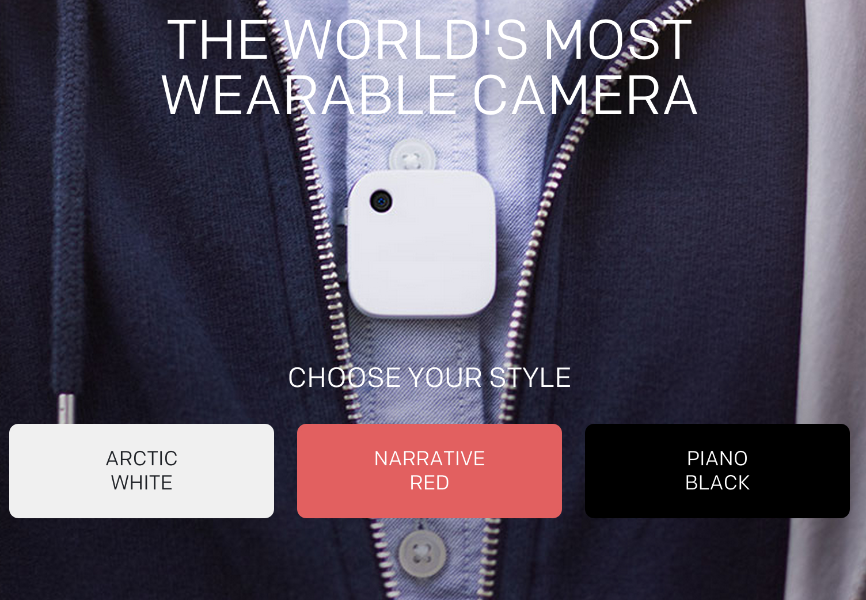 Steve Mann graduated from MIT in 1994 and began wearing a wireless camera that recorded images of the world, from his Point of View (POV) and displayed them online. The now professor at Toronto University has been campaigning for wearable technology as a human right. Another early “life-logger” Gordon Bell began collecting as much digital data on his life as possible from 1998. The Microsoft researcher wrote a book about his experiences as a life-logger called Total Recall, arguing that the e-Memory revolution will change everything. The forward was written by Bill Gates in which he says:
Steve Mann graduated from MIT in 1994 and began wearing a wireless camera that recorded images of the world, from his Point of View (POV) and displayed them online. The now professor at Toronto University has been campaigning for wearable technology as a human right. Another early “life-logger” Gordon Bell began collecting as much digital data on his life as possible from 1998. The Microsoft researcher wrote a book about his experiences as a life-logger called Total Recall, arguing that the e-Memory revolution will change everything. The forward was written by Bill Gates in which he says:
“Every day, we are exposed to an astonishing volume of words, data and media, at school, work in stores, via the Web, on TV – everywhere we go. We interact with many people, some familiar, many we may not see again for a long time, if ever. We have a continuous flow of information. There are financial transactions, medical data, transcripts, family photos – the list goes on and on. What happens to all this stuff? We store a small percentage in our brains and file some of it away in paper or electronic form. But the truth is we forget much of it and throw away most of the rest. It’s a lot of stuff to leave behind What would happen if we could instantly access all the information we were exposed to throughout our lives? If there were a way you could recall everything you once knew about someone you are going to see again for the first time in twenty years? If you could tell your doctor everything you’d eaten in the week before you broke out in hives, both yesterday and six months ago?”
The project Bell worked on: MyLifeBits – was a pioneering endeavour to record, capture and preserve in digital format everything he saw, heard and experienced. Today much of what Bell and Mann spearheaded is moving mainstream and the future they saw is becoming a reality.
Imagine the day when your life is streamed live to your Facebook page. You may be experiencing your child’s first birthday party, their first bicycle ride, college graduation or that moment you propose to a loved one. Everything you see is captured for friends and family to see in realtime, your life-logged. It won’t be long before we see this happen on an increasingly regular basis. Defence and police forces are already using the technology; as is a growing community of life-loggers.
Two products appear to be leading the charge: Autographer and Narrative clip are intelligent mini cameras – these wearable, hands-free and fully automatic camera are set to change how we capture and experience our lives forever. For around £200 just clip-on, go out and preserve memories and experiences of the world around you. Autographer is currently being redesigned as the team responsible partners with “large global brand partners to bring future devices and functionality to the market.”
Narrative Clip 2, a next generation camera is shipping in 2015. This stylish square wearable devise weighs in at a minuscule 20 grams. It uses algorithms to automatically sort your life-logged moments into collections and highlights. The “best shots” feature allows you to easily retrieve, relive and share.
Where will this technology lead? Facebook fanatics naturally but the real advances and value will be extracted in the medical arena. Those with dementia will certainly benefit. Will there be a day in the future when every part of your existence is life-logged? Are we ready for life-logging? There are moments in our lives, the breakup of a relationship or death of a family member which we may prefer to forget. However, we predict that social norms will adjust, as people get over the anxiety of being constantly filmed. Essentially who are we kidding anyway? With CSTV capturing most of our movements around cities everyday, it is arguable that life-logging has already arrived. The difference – these life-logging wearable devices allow you to take control and have immediate access to the video and images. Events will become more accurately recalled and the lives of lawyers will be disrupted as they struggle to stretch the truth, no bad thing.
Dean van Leeuwen is a co-founding partner of TomorrowToday Global. He is available to speak on disruptive forces, leadership and strategy.



Trackbacks/Pingbacks